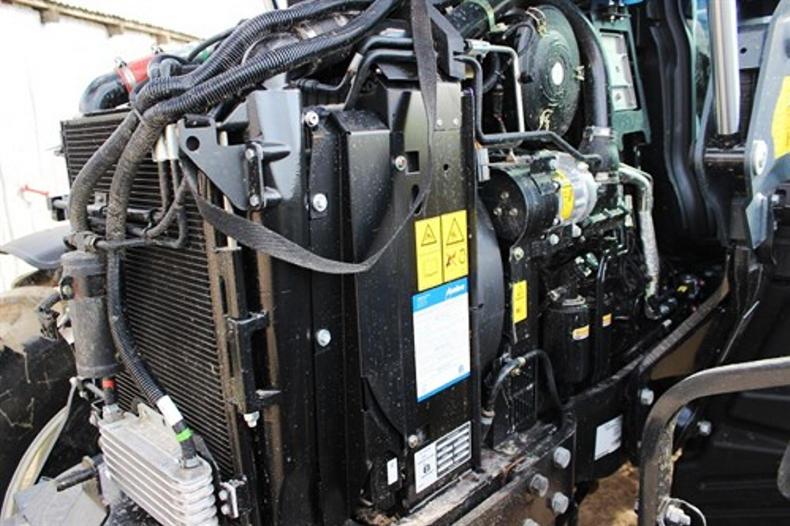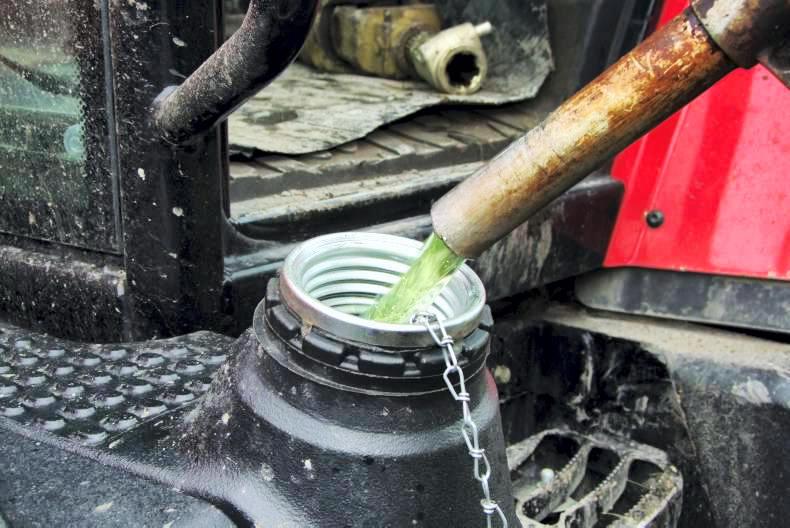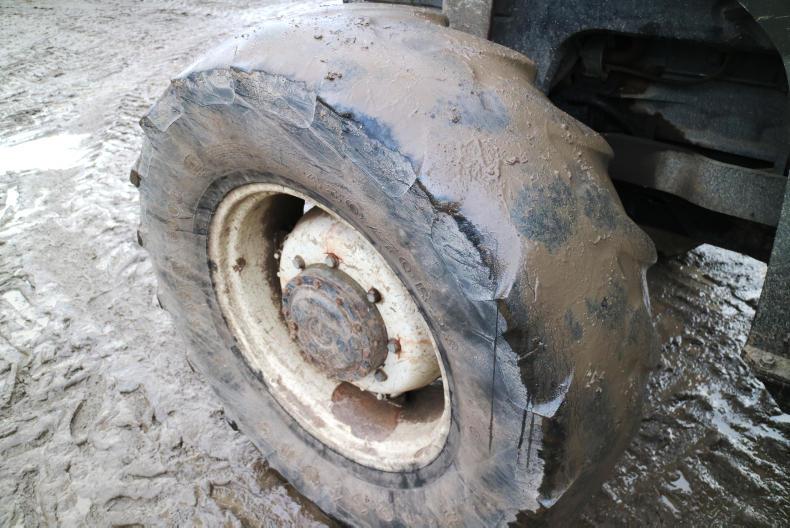Cold temperatures can have a big effect on both man and machine, so it is vital that you are prepared, for farmers themselves it means an extra pair of socks or a warmer hat whereas for their tractors there are some important areas to pay attention to in order to keep them operating to their full potential.

When it comes to a tractor’s engine, it is important that you pay close attention to fuel, lubrication and air filtration as failure to do so could result in costly repairs or machine downtime.
All fluids must be checked and topped up if necessary, including engine oil, hydraulic oil, transmission fluid, coolant and gear oil.
Pay special attention to their condition as oils with a higher viscosity will take longer to reach their ideal lubrication level, especially in colder temperatures.
Today’s synthetic and multi-grade oils cover the range of temperatures experienced throughout most of the year but it is best practice to check that your oil is up to the task and replace, if necessary, with a winter-ready version.
Always warm the engine first before working it. This is good practice all year round but is even more important during the winter. Warming the engine to its optimum operating temperature will help to prevent the intake and exhaust valves from sticking as well as reaching its ideal lubrication temperature so it protects all the internal components.
You should also give your tractor a nice stretch and cycle through all of the functions such as the steering, PTO, brakes and lift before starting work. This will distribute warm oil through the entire system, allowing it to operate easier.
Check over all the hydraulic hoses paying special attention to wear points where the hose may be rubbing as well as cracks in the pipes outer layer. The colder temperatures may cause these cracks to burst leading to downtime, fluid loss and potential environmental contamination.

Another important area to look at is your diesel. Check with your supplier and specify that you are getting a winter grade diesel, which has a much lower freezing point.
When diesel reaches freezing point, it turns into a gel, which will not flow causing the fuel lines to block and the engine to not start.
The fuel system itself should be maintained correctly for the winter which includes cleaning the fuel tank and making sure the cap is functioning properly, checking for water or sediment in the fuel which is the number one cause of fuel injection system failures and inspecting the fuel filter, replacing it if necessary.
To avoid a frozen fuel tank in the morning, fill up at the end of each day as this will remove the space for air and moisture to accumulate and help to keep the temperature inside the tank up. Always keep the diesel tank clean of water, debris and sediment by draining the water separator daily.
If the machine uses AdBlue, it’s important to remember that it can freeze and thaw without affecting its ability to function properly. AdBlue has a shelf life of about one year and should be stored in a plastic or stainless steel container, as it is mildly corrosive.
If filling up with AdBlue in colder temperatures make sure to leave room for expansion as when frozen it can expand by up to 7% and potentially crack the tank.

An area that should be paid special attention to on your tractor is the cooling system which consists of the radiator, coolant, water pump, reservoir and hoses.
You should check that the coolant in the radiator is always filled up to the cap, while also checking the cap for its proper relief pressure. The header tank should be checked and the coolant level topped up to the mark, if necessary.
All hoses and connections should be checked for their condition and replaced, if necessary. Coolant does more than just keep the cooling system from freezing; it also prevents corrosion, lubricates shaft seals, increases the boiling point temperature and inhibits cavitation, which is a damaging condition that erodes components.
Because of this, coolants should be flushed and replaced at the manufacturer’s recommended hours.
When replacing coolant you should always check the concentration, which must be maintained at 50% when mixed. Pay special attention to whether the system uses conventional or organic acid technology (OAT) coolants and never mix the two.

Cold weather itself doesn’t have a large effect on the lifespan of your battery but it does require twice as much cranking amps to get the engine to turn over, which can cause stress to certain components such as the starter and alternator.
The best practice is to keep the battery fully charged, allow it to warm up before starting and clean any corrosion from around the poles with baking soda and a pole brush. This will make sure the proper connection is achieved between the pole and clamp.
Avoid frequently starting and stopping the machine as this doesn’t allow the battery to fully recharge and can cause problems to both the battery and components down the line.

The tractor’s tyres should be inspected daily for signs of cracks or wear and replaced, if necessary. Make sure that the tyres are inflated to the correct pressure and are wearing evenly.
Remove any debris from around tyre and check that the valve and bead are sealed correctly.

Visually check around the tractor paying special attention to areas such as joints for signs of wear, Check all the components for cracks as lower temperatures can lead to metal fatigue causing these cracks to become worse or even break.
Check the windows and mirrors, making sure that they are clean and visibility is not hindered. With colder temperatures, the tractor’s windows can freeze over with ice, so it is a good idea to replace the window wipers and top up the washer system with an anti-freeze mix.
For safety, check that all the lights are working including the flashing beacon. Clean down the machine and keep it free of any buildup of debris such as mud or snow.
Hydraulic cylinder shafts should be greased to prevent corrosion from the weather. Inside the tractor cab, make sure it is clean and that the heaters are operational.
When operating any machinery, not only tractors in colder temperatures, you should reduce your speed when working and on the road which limits the stresses on the components.
With these few guidelines and a small bit of time and money spent now in the comfort of your workshop, you can winterise your tractor to avoid potential breakdowns and headaches out in the cold and wet on the farm.